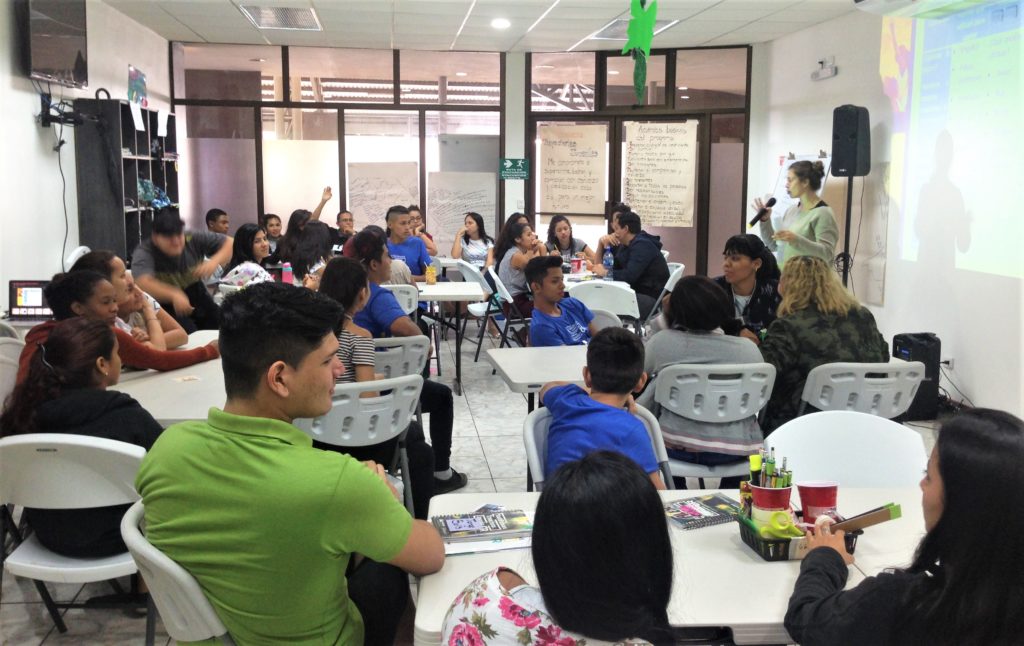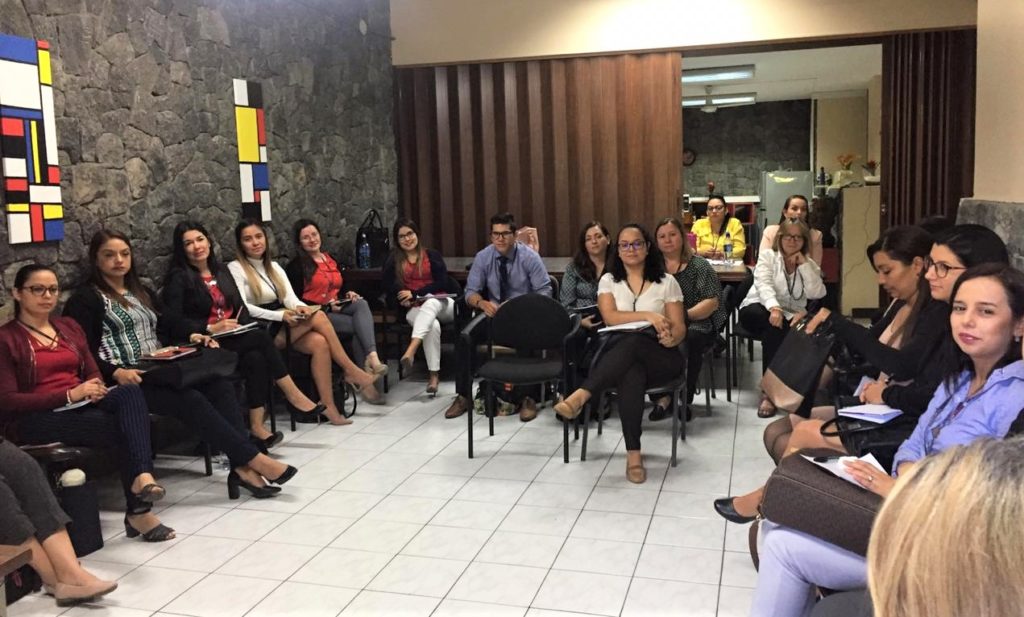The author, Diana P. Carvajal, is a volunteer legal adviser. She was deployed in Costa Rica as part of the PRODEF (Protection of Children, Women and Other Communities in Vulnerable Situations) project implemented by the International Bureau for Children’s Rights (IBCR) and Lawyers without Borders Canada (LWBC), thanks to the financial support of the Canadian Government, provided through Global Affairs Canada. As part of her mandate, she supported the Paniamor Foundation in promoting and raising awareness about children’s rights and prevention of violence, abuse, and exploitation.
My experience in Costa Rica was enriched by a series of successful capacity building activities concerning Law 9406, known as the “Law Against Improper Relationships” (translated from the original Spanish title), which entered into force in January 2017. The main objective of the Law is to strengthen the protection of children and teenagers in relation to the prevention of situations of abuse and violence related to inequitable and prejudicial sexual relationships [by modifying certain provisions of, among others, the Criminal Code and the Family Code of Costa Rica]. Throughout my mission, I had the privilege of leading several pilot workshops with the Paniamor Foundation in order to develop an extended training program to promote cultural awareness regarding hidden and legitimised forms of violence against children.
Reviewing Consent to Sexual Relationships
It is worth highlighting the participation of my colleague Justine St-Jacques, volunteer legal advisor deployed as part of PRODEF, in advocacy activities which were significant to the approval of the Law by the Legislative Assembly in November 2016. The adoption of this instrument constituted a major step forward in the regulation of “improper relationships” which, in turn, helped promote awareness among various sectors of Costa Rican society. Indeed, often accompanied by situations of physical and emotional control and abuse, improper relationships are generally distinguishable by the existence of an asymmetry of power which has negative and serious consequences on the lives of the victims. Thus, this new Law establishes a framework that facilitates the recognition of these types of situations.
The most significant aspect of the law is that it recognises the invalidity of consent by teenagers who are not able to give valid, free, informed and conscious consent, considering their biopsychosocial development and unawareness of the harmful consequences that these improper unions cause on their rights to education, health, recreation and participation. Considering these issues, the law establishes a legal presumption of non-consent by minors and eliminates the onus on the victim to demonstrate the existence of exploitation. Furthermore, criminal sanctions are now applied to adults who have sex or are guilty of acts of a sexual nature with minors, in accordance with the age of the latter and the age gap between them. Additionally, the age of consent to marriage was raised to 18 years, prohibiting minors from getting married even with the consent of their parents. Anyone can now report these crimes to the police under the law.
Three different areas of action
First, we organised training sessions aimed at reaching both community members and public authorities to help identify situations of vulnerability, as well as the triggers or contributory factors, such as social and economic violence, that lead to sexual abuse against children. One main objective was to create awareness of the fact that, frequently, these situations happen under the idle, silent and sometimes complacent look of the family, the community and even the institutional framework entrusted with protecting the rights of children and adolescents. Unfortunately, certain beliefs and practices in Costa Rican society tolerate and even promote these kinds of inappropriate relationships which has led them to become normalised in society, mainly through justification, distance, and concealment.
In this respect, we lead several training sessions on children’s rights and the prevention of sexual abuse and human trafficking addressed to an audience of young people in situations of socio-economic exclusion. More specifically, the participants were part of the Youth Pathways project which promotes leadership, soft skills learning and improvement of employability skills and opportunities for youth (ages 15 to 21) in Limon, a port city along the Atlantic coast of Costa Rica. In particular, the workshops included teamwork activities to stimulate reflection on the risks which young people are exposed to and on the ways to prevent them.


Alongside Katia Rojas, a psychologist and gender approach expert from the Paniamor team, I had the privilege of conducting a seminar to discuss strategies to strengthen the competencies of public authorities who hold positions related to the protection of children in Costa Rica. Over a hundred social workers from the Department of Social Work and Psychology of the Judiciary Branch were present. The sessions were meant to raise awareness of the value of expert reports and emphasised the importance of using appropriate language in issuing their expert opinion, as well as the necessity of giving attention and support to children victims of sexual crimes. According to the majority of the participants, the training helped them become more aware of the importance of language and its role in judicial processes. They also expressed feeling better prepared to take care of and guide victims.
Finally, as a conclusion to my mission, I held a workshop with the entire Paniamor team to share the results of multiple interviews with public authorities as well as the analysis that I performed on the scope, objectives, and implementation of the Law. This was an opportunity to consider the challenges faced by the organisation to effectively contribute, alongside State institutions, to further the protection of children. I left with the hope that my recommendations and conclusions will be useful for the continuance of Paniamor’s invaluable work.





